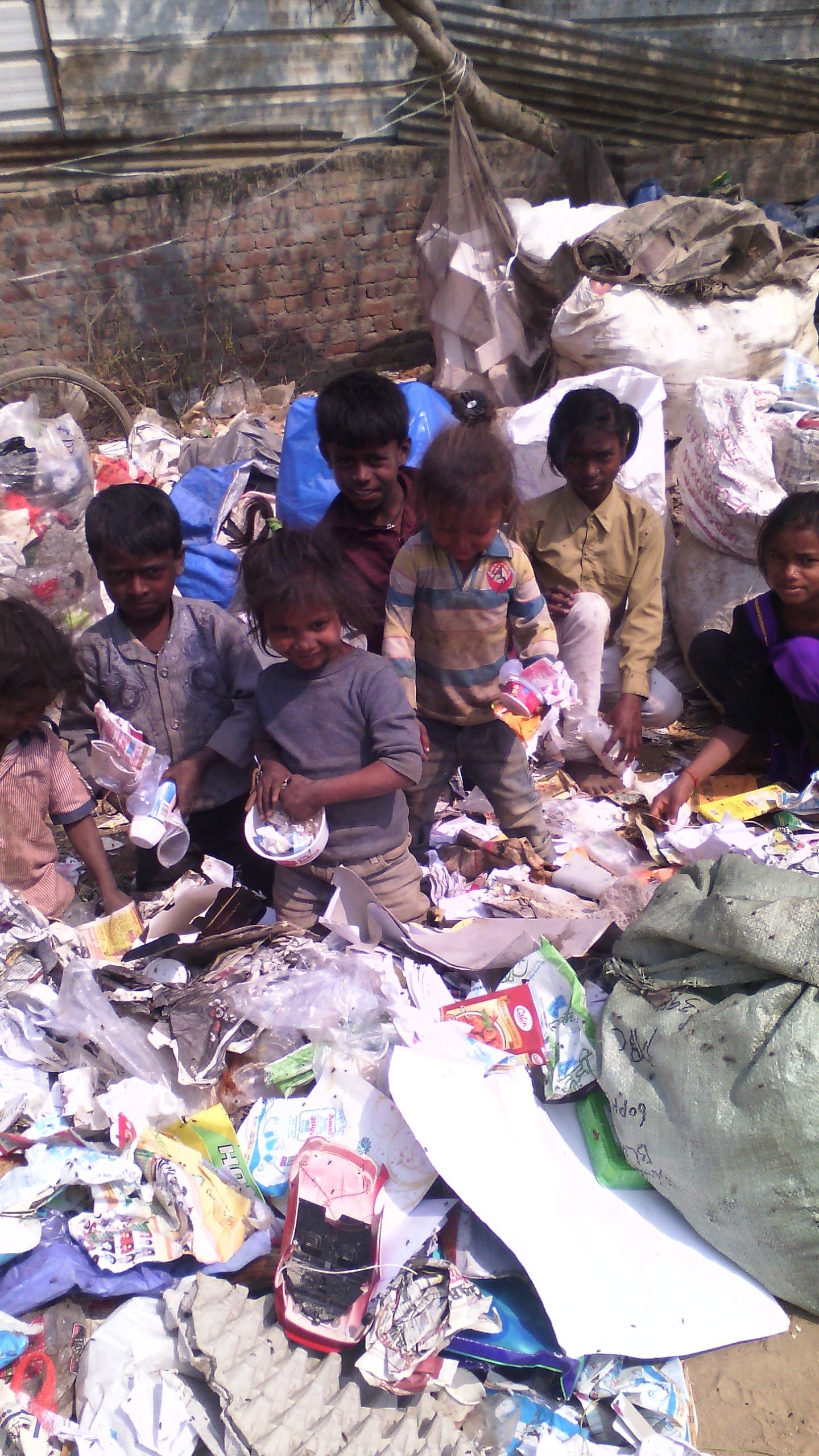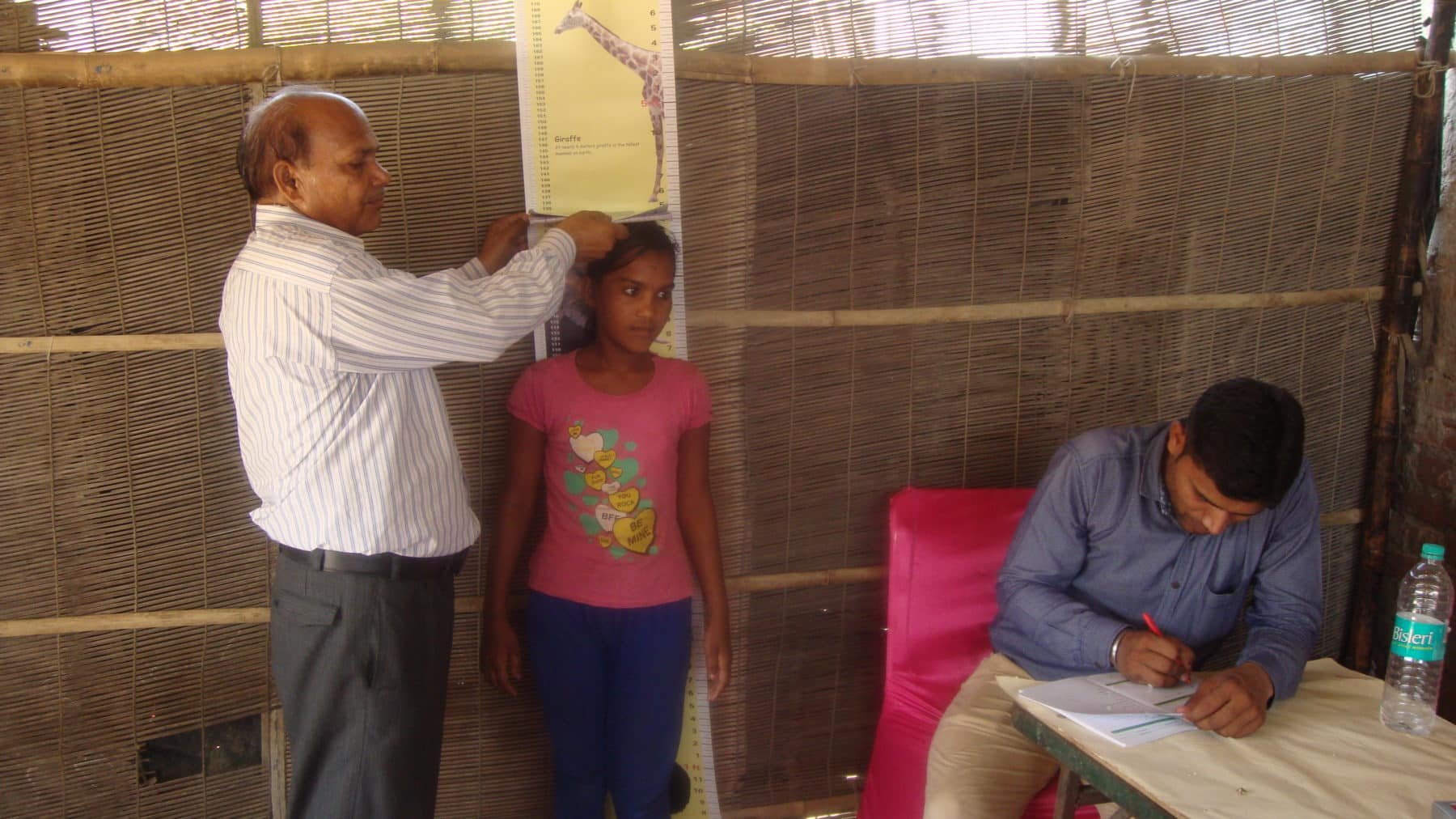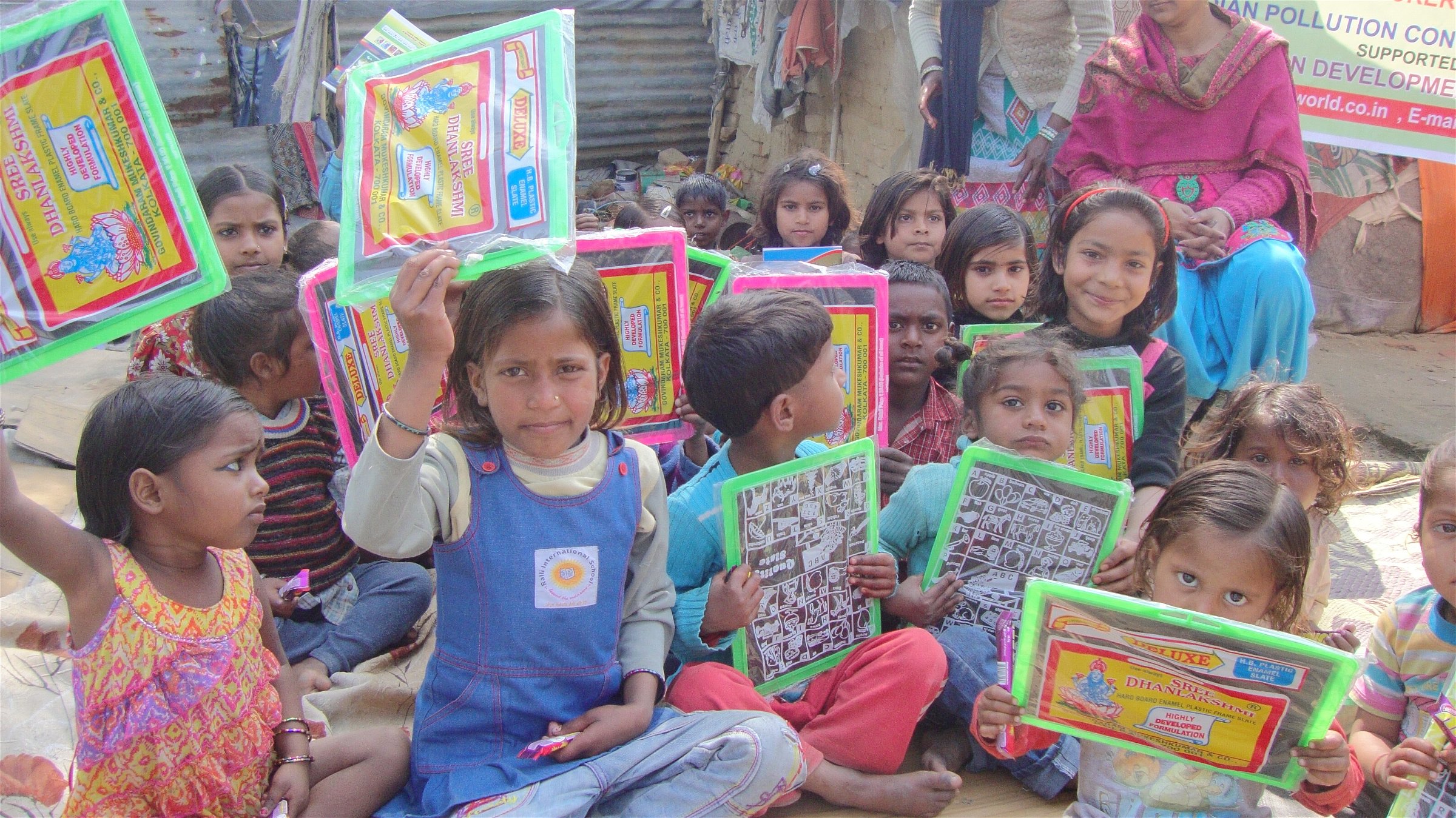Project: Educating Rag Picker Communities in partnership with the Indian Pollution Control Association (IPCA)
Location: Delhi; Noida and Ghaziabad, Uttar Pradesh; Gurgaon, Haryana
Category: Health Care
Providing Health Care Education to Rag Picker Communities
Since 2000, UNICEF (United Nations Children’s Fund) has been actively promoting a major sanitation and hygiene education project in India. Unfortunately, sanitation education is still very far out of reach of the children of poor and underserved communities in urban India, and many health-related issues are prevalent in such communities.

Rag pickers are one such community in urban India. This community, which earns its livelihood by collecting waste from various sources, is rapidly growing due to the huge amounts of waste generated in cities. Rag pickers and their families live in slum areas and in “godowns” (warehouses) which are illegal and are not equipped with electricity, water, and sewer line connections. As a result, rag pickers do not have access to basic amenities like safe drinking water and sanitation. Therefore, education about personal hygiene, health care, and sanitation is essential for this community.
Children can play a vital role in improving the lifestyle of the rag picker community. Therefore, the Indian Pollution Control Association (IPCA) is conducting an intervention to educate the children and youth of this community and to offer them regular medical and dental care.
The goal of this project is to bring about behavioral change among the younger population of the community and improve their lifestyle, social status, and health conditions. This, in turn, would encourage young rag pickers to promote sanitation and hygiene education further among their community.
Two primary interventions have been implemented:
A. Periodic Health Camps. In partnership with local doctors, we now track, monitor, and treat the children. Dental care is also being provided.
B. Improving conditions within the godowns. IPCA operates five schools in the Rag Pickers’ Children’s Education Programme. All the schools are situated in the same godown where the rag pickers do their work.
IPCA recently introduced a new initiative to encourage cleanliness: a waste bin in every school. Surprisingly, IPCA has found that waste bins in the schools have multiple benefits.
First of all, the presence of a waste bin in the midst of the rag pickers’ workplace contributes to a culture of neatness and cleanliness in the school. When the waste bins were first introduced in IPCA’s schools, children would, as before, throw the waste anywhere they pleased. But with repeated reminders from teachers, the children began to use the new waste bins. The example set by older children and teachers has been powerful. Now, the new students—and even the smallest children—use the waste bins without prompting.
Though these achievements may seem trivial, this small initiative is contributing to the larger goal of Swachh Bharat Abhiyan (the Clean India Mission) launched by Prime Minister Narendra Modi in October 2014. In Modi’s words, “A clean India would be the best tribute India could pay to Mahatma Gandhi on his 150th birth anniversary in 2019.”
–2015 IDS annual report

The Indian Pollution Control Association (IPCA) works with a network of rag picker communities operating in “godowns” (warehouses). The rag pickers and their children collect, sort, process, and sell waste material like organics (e.g., paper, cardboard) and inorganics (e.g., plastic, glass, metal). The rag pickers live either in the godowns themselves or in nearby slums. Such unauthorized colonies lack access to clean drinking water and sanitation infrastructure. Furthermore, most rag pickers are illiterate immigrants who are unaware of basic hygiene practices. Working with waste, coupled with poor sanitation and a lack of basic hygiene, can create literally a toxic mix. As one might expect, rag picker children are frequently sick and malnourished.

There are approximately 700 rag pickers from Delhi, Noida and Gurgaon who are associated with Indian Pollution Control Association and are working on IPCA’s various waste management projects. With the support of IDS, IPCA is planning to educate approximately 500 such people about personal hygiene, health care, and sanitation within the year through its proposed activity-based care and learning program. The unit cost is expected to be about $6 per person per year.
Under this program, rag pickers will be educated in hand- and dish-washing techniques, taught the importance of clean drinking water, and instructed in the benefits of using community toilets over open defecation. The program will also impart knowledge on low-cost and simple sanitation technologies available for installation in godowns and residences; demonstrations in the use of such technologies will be included. Finally, IPCA will communicate “best practices” to ensure safe handling, processing, and disposal of waste.
We shall first target children through hygiene promotion campaigns; these have proven to be the most effective among younger populations. Students can be targeted as both beneficiaries and agents of behavioral change within their families and their communities.
The number of modules required to develop, produce, and deliver pedagogy needs to be carefully crafted for the target community. Such pedagogy will be tested through pilot programs. Major modules would include:
- Safe handling of waste
- Prevention and treatment of infections
- Role of inoculations
- Accessing government resources (e.g., health care)
- Detection of common ailments (e.g., iron deficiency)
- Role of vitamins and minerals
- Importance of safe drinking water
- Maintaining proper sanitation
Through storytelling, placards, and activity-based learning, we will develop a unique pedagogy to impart the relevant knowledge.
–2014 IDS annual report

